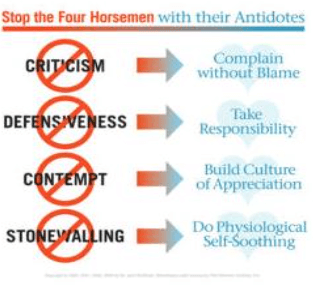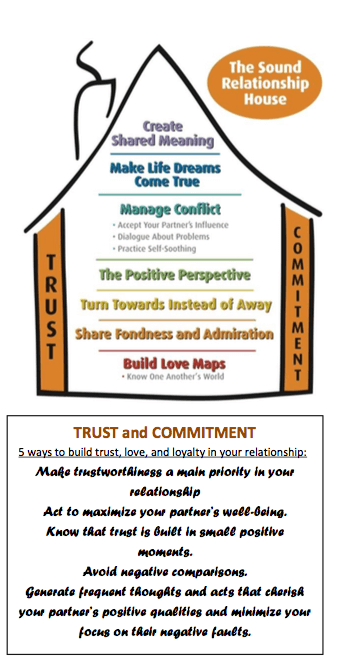Psychologist and co-founder of the Emotionally Focused Therapy Dr Sue Johnson explains that we are born with fundamental needs – to survive and to belong. As a result, we have the corresponding fears – fear of injury/death and fear of abandonment/rejection. These are as powerful as each other and sometimes we will act in a way that will risk… or even cost… us our life – so that we are not abandoned/rejected. Fears can be triggered by cues, suggesting a threat. Some cues are with us when we are born. For example, wind in the face, loud noises, or quick drop can startle, upset, or panic a baby. Similarly, there are cues that trigger our fear of abandonment/rejection. These are just as powerful and can trigger primal panic, similarly to that of injury/death.
Professor of Psychology at the University of Massachusetts Dr Edward Tronick has demonstrated this in his series of experiments popularly called the “Still Face Experiments”. You can easily find the video on YouTube. The experimenter asks the mother to face the baby without responding to her. The baby immediately notices the ‘disconnect’ and instinctively (she has no logic developed yet) acts to get her mother back. After number of failed attempts, the baby’s distress becomes unbearable and the experiment is stopped after only 2 minutes. The attempts to reconnect vary from withdrawal, to appealing to mother’s curiosity, to protest, to panic. This is our normal human way of connecting with loved ones. Adults do that too. Especially, when feeling a ‘disconnect’ from our partner. Sometimes this works. I might realise how much pain my partner is in and come to soothe her (Win my Sweetheart’s Heart) after hearing her yelling “you’re never there for me!” Alternatively, I might experience this as a ‘disconnect’ and a ‘threat’ of abandonment/rejection and… panic as well. Sometimes unburdening our panic, expelling our anger, or protecting ourselves will trigger our partners more (and so on…). Responding to your partner’s attempts to reconnect in a way that is perceived as reconnecting will be Winning Your Sweetheart’s Heart.
Fault… We focus so much on whose fault it is…
Blaming ourselves can be so painful and can flood us emotionally. Unburdening through blaming others can result in them feeling under attack and defend. Chances are, of course, if we or our partners could simply choose between two buttons “good response” or “bad” – we would always choose “good”! But it’s not that simple and the world can be harsh and complex. If I don’t fully control it, how can it be my or my partner’s ‘fault’? Our experiences can be multifaceted and painful and sometimes couples fall into a pattern that is not working. As Dr Sue Johnson calls it the “protest polka” is a dance, where one partner’s move hurts the other, pushing them to move in a hurtful way, and so on. Consider in your relationship, when you and your partner get into painful conversations, does one withdraw more, while the other pursues? Does one’s withdrawal lead the other to pursue more? Does the pursuit lead to more withdrawal? This is a painful place for anyone to find themselves and I find it difficult to allocate faults to either of the partners. Finding a way out of this pattern can help you Win Your Sweetheart’s Heart.
When we step on someone’s foot, there’s no need to be confused. The person who did the hurting, cares for the person in pain, “are you ok? I am so sorry, I didn’t see you there. Let me have a look at it” and so on. Unfortunately, we seem to regard physical pain as more valid than emotional… for some reason. Our partners can – and if we care about each other, will – get hurt emotionally by something we have done. During that time, we could look after our partners (apologise, soothe, etc) or do I look after ourselves (defend, blame, etc). Dr John Gottman calls times that we face this choice “sliding door moments” (after the movie). One such event does not define the relationship. It is important, however to consider that every time we choose ourselves, we erode trust. On the other hand, every time you choose to look after your partner, you build trust and get another step toward Winning Your Sweetheart’s Heart. Yes, you read correctly – trust is built in small daily choices, when you put your partner before yourself.
How do I know when I trigger my partner’s primal panic? Dr John Gottman and his team spent literally decades videotaping couples, coding their behaviours, observing their impact on relationships. Ultimately, they were able to define 4 behaviours that they called the “disasters of relationships” (or the 4 Horsemen of the Apocalypse). Each comes with an antidote to help you in Winning Your Sweetheart’s Heart. As you read through those, notice that each of these behaviours are more than common in our communities – they are culturally supported:





